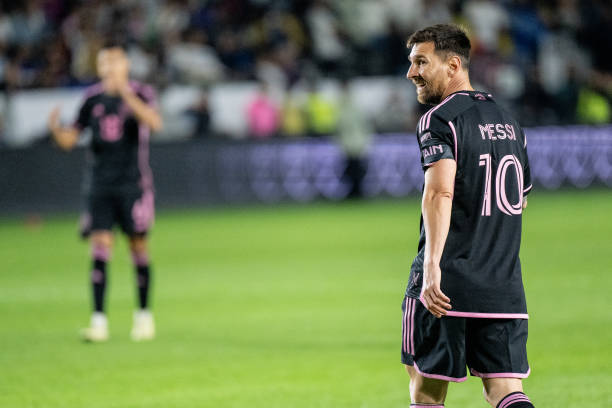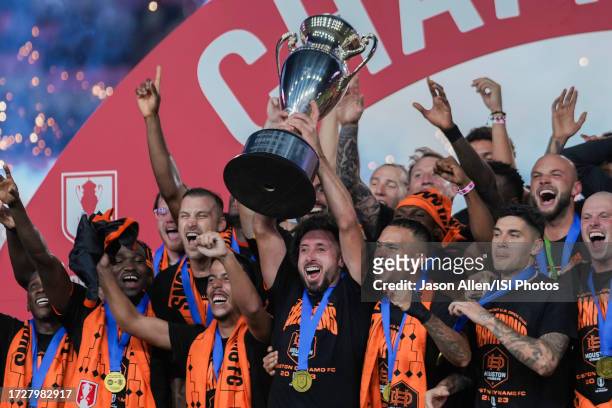It was 24 years last month since Manchester United travelled to Brazil to participate in the inaugural FIFA Club World Cup amid a backdrop of controversy and scandal. In order to do so, Sir Alex Ferguson's side had to pull out of the FA Cup, the oldest and most prestigious club competition in world football, much to the outrage of other English clubs and the country's sports media, who didn't waste any time in condemning the decision and accusing the club of devaluing the competition.
Fast forward nearly a quarter of a century and it has been announced this week that just eight Major League Soccer teams will compete in the Lamar Hunt US Open Cup, the American equivalent of the FA Cup. Launched in 1914, it is by far the country's oldest soccer competition and the lifeblood of the amateur game, the only opportunity for teams further down in the pyramid to play against the stars of Major League Soccer.
In recent years, the tournament has seen several upsets and, without promotion nor relegation from the closed shop of MLS, these are rare opportunities for lower league teams to test themselves against the best teams in the country.
So why is the competition being devalued and why are MLS teams pulling out of it?
Fixture Congestion
This is the big one. With Major League Soccer holding such sway in the American game and its teams participating in Pan-American tournaments such as the CONCACAF Champions League and money-spinning MLS/ Liga MX venture Leagues Cup as well as breaks for international friendlies and tournaments such as next summer's Copa America, the calendar space for the Open Cup has been reduced further. Furthermore, the expansion of the MLS playoff format sees those that make the post season effectively play from February until November or even December, raising concerns about player welfare and the risk of injury or exhaustion through obscene amounts of travel and changing time zones and climates.
MLS Commissioner Don Garber has said as much recently, adding that the league's salary cap means that squad depth becomes an issue with more tournaments on the calendar, potentially forcing teams in the top tier to field weakened sides or even their MLS Next Pro (Youth) teams against inferior opposition.
Messi Mania
Of course. You thought you were about to read a US soccer article without mention of him, didn't you? With the Argentinian superstar's contract closely tied to league broadcasters Apple TV and kit manufacturers Adidas, MLS is naturally bending over backwards to milk every last cent out of the ultimate footballing cash cow, bad news for the US Open Cup which is not included as part of Apple's historic deal.

With the overwhelming coverage of Messi and Miami this season and all that entails in exorbitant ticket price increases, explosions in social media followings and the circus that will follow Tata Martino's side wherever they go, the South Floridians will sit out of the tournament alongside others such as current MLS Cup holders Columbus Crew and Ohio rivals Cincinnati, whilst others such as NYCFC, New York Red Bulls and Minnesota United will send reserve sides.
Losing finalists last season, the non-participation of Inter Miami as well as many other MLS franchises will hurt the competition perhaps irreparably.
The Heritage of US Soccer under threat
Despite the world's derision of the sport in the USA, soccer has a long and proud heritage in the country. The US Open Cup is very much a symbol of that and to dilute the competition is to take a shot at the heart of the game in America. With that being said, a competition with less MLS teams may provide an opportunity for a lower tier side to claim the cup for the first time since the (Formerly Jamie Vardy part owned) Rochester Rhinos in 1999, with only Sacramento Republic making the final since ( 2021/2022, losing to Orlando City).
Whilst MLS is making history with record attendances in stadiums and record Apple TV audiences as it capitalises on the Messi Miami gold rush, it's essential that US soccer does not lose sight of the rich history outside of the top tier, a history that forms the backbone of the sport in the USA that Messi is now taking forward into the global conscience.

